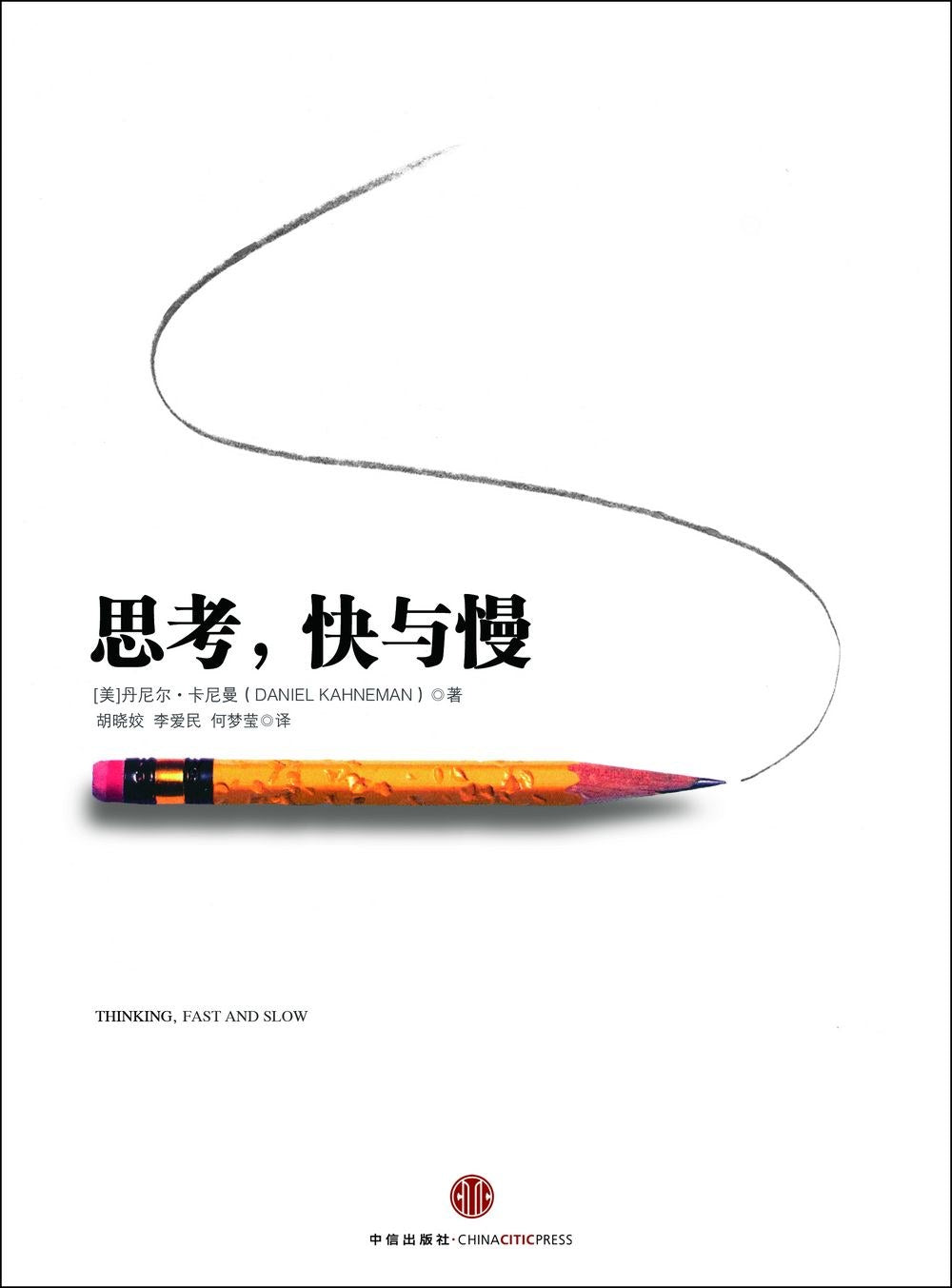WULOLIFE
《思考,快与慢》作者: [美国] 丹尼尔·卡尼曼 出版社: 中信出版社 原作名: Thinking, Fast and Slow
《思考,快与慢》作者: [美国] 丹尼尔·卡尼曼 出版社: 中信出版社 原作名: Thinking, Fast and Slow
Couldn't load pickup availability
Description
内容简介 · · · · · ·
《纽约时报》2011年度十大好书
新书上市,连续20多周蝉联亚马逊《纽约时报》畅销书排行榜前20名,上市至今超过7个月,横扫全球各大畅销书排行榜,稳居亚马逊总榜前50名
《经济学人》、《华尔街日报》、《卫报》、《纽约时报》、《金融时报》、《商业周刊》、《华盛顿邮报》、等国外权威媒体,《三联生活周刊》、《商学院》、《东方早报》等国内知名媒体争相报道,国内外读者好评如潮
人类究竟有多理性?——思考,快与慢
在书中,一次思维的终极之旅。他认为,我们的大脑有快与慢两种作决定的方式。常用的无意识的“系统1”依赖情感、记忆和经验迅速作出判断,它见闻广博,使我们能够迅速对眼前的情况作出反应。但系统1也很容易上当,它固守“眼见即为事实”的原则,任由损失厌恶和乐观偏见之类的错觉引导我们作出错误的选择。有意识的“系统2”通过调动注意力来分析和解决问题,不容易出错,但它很懒惰,经常走捷径,直接采纳系统1的直觉型判断结果。
为了使读者真切体会到系统1和系统2这两个主角的特点,了很多经典有趣的行为实验,指出我们在什么情相信自己的直觉,什么时候不能相信;指导我们如何在商场、职场和个人生活中作出更好的选择,以及如何运用不同技巧来避免那些常常使我们陷入麻烦的思维失误。
本书将会彻底改变你对思考的看法。
编辑推荐
50年前,人们以为我们能驾驭自己的思想。但事实上,我们的行为常常受到许多无法看见的因素所影响。我们虽然身处生活这场游戏之中,偏见常常导致我们追求错误的东西。我们的感知和记忆并不可靠,对于自己心理状态的感知和记忆尤其不可靠。
于人类自身还有许多未知之谜,对于自己,了解得其实不多。卡尼曼就如思想的拓荒者,他的研成果为我们认识自我提供了重要的支点。卡尼曼的理解所作出的贡献,无人能出其右。作为历史上最重要的一位心理学家,卡尼曼重塑了认知心理学、理性和因果关系分析,重新诠释了风险,重新阐释了幸福和财富的关系,写就了这部杰作。如果你今年只能读一本书,就读这一本吧。
媒体和专家热评
这是社会思想的一部里程碑式著作,堪与亚当•史密斯的《国富论》和西格蒙德•弗洛伊德的《梦的解析》相媲美。
——纳西姆•尼古拉斯•塔勒布,《黑天鹅》作者
本书是一位智慧巨人的力作,可读性强,睿智,深刻。赶紧买,慢慢读,而且要反复读。这本书会改变你的思考方式,读了它,你对工作、世界还有自己的生活的看法都会改变。
——理查德•H.•泰勒,芝加哥大学经济学教授,《助推》作者
本书堪称杰作——由我们这个时代最伟大、最深邃的一位思想家推出的恢弘巨作,Chinese:
——丹尼尔•吉尔伯特,哈佛大学心理学教授,《哈佛幸福课》作者
丹尼尔•卡尼曼是我们这个时代最有独创性、最有趣的思想家之一。也许我们这个星球上再无第二个人比他更懂我们怎样作出选择、为什么这样选择了。在这本精彩绝伦的书中,他用一种简单而又吸引人的方式为我们展示了令人受益一生的智慧。本书是所有怀有好奇之心的人的必读之作。
——史蒂文•列维特,芝加哥大学杰出经济学教授,《魔鬼经济学》与《超爆魔鬼经济学》作者
一本杰出的著作,细节清晰,文笔优美,诠释精准,娓娓道来。它适合于所有系统2还没有完全失效的人阅读。
——《卫报》
这本书的内容非常丰富:深入浅出,充满学术价值和自助价值。人类的思考有如此多的缺陷,以至于《纽约时报》的专栏作家戴维•布从现在起将被铭记数百年,强烈推荐大家购买并阅读本书。
——《纽约时报》书评版
阐述人类的理性和非理性的好书已经有很多有一部杰作,那就是Note:
——《金融时报》
意义深远。就像哥白尼否定地心说、达尔文提出生物进化论一样,卡尼曼向我们展示了,我们并没有自己想象的那么理性。
——《经济学人》
时五十载,通过对人类判断、决策和选择的研究,卡尼曼写就了这部令人称道的作品。他的优雅有力的观点和极具说服力的证据,思维提大有裨益。
——《华尔街日报》
有说服力的论述。根基于自己的和多位心理学家、经济学家与其他专家的研究成果,卡尼曼拥有了一种卓越的能力,能够把数十年以来的研究成果以一种有趣的语言呈现出来,即使门外汉也能看得懂。这本书是一本非常重要的书。许多科学书通常是前后不一的,一些有趣的章节后面往往跟着一些枯燥乏味的内容。这本书就不是这样,它既是有分量的一本书,同时充满了魅力和每个人都应该读读这本书。
——《波士顿环球报》
作者简介 · · · · · ·
丹尼尔·卡尼曼(Daniel Kahneman,心理学家。1934年出生在以色列特拉维夫,以色列和美国双重国籍。1954年毕业于以色列希伯来大学,获心理学与数学学士学位。2002年,因其与阿莫斯·特沃斯基在决策制定上的研究而荣获诺贝尔经济学奖。他的主要贡献是在不确定条件下的人为判断和决策方面的发现。他展示了人为决策是如何异于标准经济理论预测的结果。他的发现激励了新一代经济学研究人员运用认知心理学的洞察力来研究经济学,使经济学的理论更加丰富。
